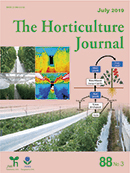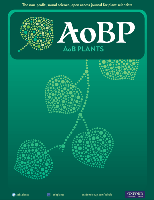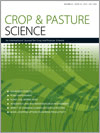
Gesunde Pflanzen
Scope & Guideline
Driving Breakthroughs in Agricultural Sciences
Introduction
Aims and Scopes
- Plant Pathology and Disease Management:
Research addressing fungal, bacterial, and viral diseases affecting crops, including innovative management strategies such as biocontrol agents, resistant varieties, and chemical treatments. - Physiological Responses to Environmental Stress:
Studies on how plants respond to abiotic stresses such as drought, salinity, and temperature extremes, including the mechanisms of tolerance and resilience. - Soil Health and Fertility Management:
Exploration of soil amendments, organic fertilizers, and microbial interactions that improve soil health and promote sustainable agricultural practices. - Innovative Agronomic Practices:
Investigation of various agronomic practices that enhance crop yield and quality, including irrigation strategies, planting methods, and nutrient management. - Biostimulants and Growth Regulators:
Research on the use of natural and synthetic growth regulators and biostimulants to enhance plant growth, physiological traits, and stress tolerance. - Nutrient Management and Biofortification:
Studies focused on improving nutrient use efficiency and biofortification strategies to enhance the nutritional quality of crops.
Trending and Emerging
- Sustainable Agricultural Practices:
There is a growing emphasis on research that promotes sustainable practices, such as organic farming, reduced chemical inputs, and regenerative agriculture. - Climate Change Adaptation Strategies:
Studies exploring how plants can be managed to withstand climate change impacts, including drought resilience and heat tolerance, are becoming more prevalent. - Microbial Interactions and Biocontrol:
A significant rise in research on the role of beneficial microbes, such as mycorrhizae and rhizobacteria, in promoting plant health and disease resistance. - Advanced Technologies in Agriculture:
The integration of technology, such as precision agriculture, remote sensing, and AI in crop management and monitoring, is increasingly being featured. - Nutritional Quality Improvement:
An emerging focus on improving the nutritional quality of food crops through innovative agricultural practices and biofortification techniques.
Declining or Waning
- Traditional Chemical Control Methods:
There is a noticeable decline in research focused solely on conventional chemical pesticides and herbicides, as the journal shifts towards more sustainable and integrated pest management strategies. - General Reviews on Plant Diseases:
The frequency of broad review articles summarizing plant disease knowledge has decreased, indicating a shift towards more specific, data-driven studies that offer novel insights. - Invasive Species Studies:
Research specifically targeting invasive plant species and their management has become less prominent, possibly due to a broader focus on resilience and sustainability in plant health.
Similar Journals

Pesquisa Agropecuaria Tropical
Exploring the forefront of agronomic research.pesquisa Agropecuaria Tropical is a premier Open Access journal dedicated to advancing the knowledge and practices within the field of agronomy and crop science. Since its inception in 1971, this peer-reviewed journal, published by the Universidade Federal de Goiás, has played a pivotal role in disseminating high-quality research from Brazil and beyond. Operating under an Open Access model, it ensures that scholarly articles are freely accessible, thereby fostering greater collaboration and innovation. With a Scopus ranking placing it in the 32nd percentile among its peers in agricultural and biological sciences, and a current classification in the Q3 category of agronomy and crop science, the journal serves as an essential resource for researchers, professionals, and students alike. As it continues its publication journey from 2010 to 2024, it remains committed to contributing valuable insights and advancements in the agricultural sector, ultimately influencing sustainable practices and food security.

Horticulture Journal
Innovating Sustainable Practices in Plant ScienceThe Horticulture Journal, published by the Japan Society for Horticultural Science, is a leading academic platform dedicated to the advancement of horticultural research and practices. With an ISSN of 2189-0102 and an E-ISSN of 2189-0110, this journal endeavors to publish high-quality research that emphasizes innovative techniques, sustainable practices, and the science of plant cultivation. The journal has been recognized for its impact within the field, currently holding a Q2 ranking in Horticulture and a Q3 ranking in Plant Science as of 2023, indicating its significant contribution to advancing knowledge. With its open-access model, researchers, professionals, and students have the opportunity to engage with the latest findings, thanks to the journal's commitment to widespread dissemination of information. Since its convergence period began in 2015 and continuing through to 2024, the Horticulture Journal remains instrumental in promoting sustainable and beneficial practices in horticulture science globally.

Legume Research
Championing Legume Research for a Resilient TomorrowLegume Research, published by the AGRICULTURAL RESEARCH COMMUNICATION CENTRE in India, is an essential peer-reviewed journal focusing on advancements in the field of agronomy, crop science, soil science, and plant science. With an ISSN of 0250-5371 and operating since 2008, this journal caters to researchers, agricultural professionals, and students interested in the critical role of legumes in sustainable agriculture and food security. It ranks within the third quartile (Q3) in several prominent categories, reflecting its contribution to the agricultural and biological sciences community—ranking #279 in Agronomy and Crop Science, #113 in Soil Science, and #376 in Plant Science based on Scopus metrics. Although not open access, Legume Research remains a vital resource for those seeking to enhance their knowledge and contribute novel research findings in the ever-evolving discipline of legume cultivation and utilization. With a clear objective to disseminate impactful research, this journal significantly contributes to the global understanding of legumes' ecological, economic, and nutritional importance.

AoB Plants
Empowering discovery in plant biology and ecology.AoB Plants is a distinguished open-access journal published by Oxford University Press, dedicated to advancing the field of plant science. Since its inception in 2009, this journal has played a pivotal role in disseminating high-quality research that encompasses a wide range of topics including plant biology, ecology, and biotechnology. With an impressive impact factor and a ranking in the Q1 quartile for Plant Science, AoB Plants is recognized for its innovative contributions and scholarly rigor, ranking #129 out of 516 in the Scopus Agricultural and Biological Sciences category, placing it in the 75th percentile among its peers. By promoting open-access availability of research findings, the journal empowers researchers and practitioners alike, facilitating greater collaboration and knowledge sharing in the global scientific community. Situated in the heart of the United Kingdom, AoB Plants continues its commitment to providing a platform for pioneering research and developments in plant science, thus fostering a deeper understanding of the crucial roles that plants play in our ecosystems and economies.

PLANT SOIL AND ENVIRONMENT
Unveiling the Secrets Beneath: Soil Science for a Greener Future.PLANT SOIL AND ENVIRONMENT is a premier open-access journal dedicated to the interdisciplinary study of soil science, agronomy, and environmental interactions, published by the Czech Academy Agricultural Sciences. With an ISSN of 1214-1178 and E-ISSN 1805-9368, this journal has been a vital platform for dissemination of research since its inception in 2002. Based in the Czech Republic, it has garnered a robust reputation within its field, as indicated by its impressive Q2 ranking in Soil Science and ranking #47 out of 159 in the Scopus Ranks for Agricultural and Biological Sciences, placing it in the 70th percentile overall. The journal explores diverse topics within soils and their significant roles in plant health, ecosystem services, and sustainable agricultural practices, contributing important insights that benefit researchers, practitioners, and policy-makers alike. Aiming for a global outreach, PLANT SOIL AND ENVIRONMENT not only facilitates open dialogue among scientists but also ensures that cutting-edge research is freely accessible to enhance the knowledge base in soil science.

CEREAL RESEARCH COMMUNICATIONS
Driving excellence in cereal research since 1993.Cereal Research Communications is a premier academic journal published by Springer Heidelberg, dedicated to advancing knowledge in the field of agri-food science with a particular focus on agronomy, crop science, genetics, and physiology. With a strong reputation reflected in its Q2 ranking in Agronomy and Crop Science, this journal serves as a vital resource for researchers, professionals, and students alike. Published in Hungary, the journal facilitates the dissemination of innovative research and practice, covering a broad spectrum from crop genetics to physiological processes, thereby fostering a multidisciplinary dialogue among scholars. The journal has maintained a consistent publication record since its inception in 1993 and will continue its commitment to academic excellence and relevance through 2024. Although it operates under a subscription model, its contributions are crucial for those engaged in improving crop productivity and sustainability. For those looking to connect with cutting-edge research and contribute to the food security dialogue, Cereal Research Communications remains an essential platform in the field.

Plant Stress
Illuminating the Path of Plant ResiliencePlant Stress is a prestigious academic journal published by Elsevier that focuses on the critical study of stress responses in plants, bridging vital areas such as ecology, evolution, and plant science. With its ISSN 2667-064X, this journal serves as an essential platform for researchers and professionals seeking to explore innovative findings and advancements in plant stress biology. Its notable rankings in the Q1 category for both Ecology, Evolution, Behavior, and Systematics and Plant Science as of 2023 further establish its significance, being recognized in the top quartile of its field. The journal’s impressive Scopus ranks, including Rank #144/721 and Rank #107/516 in the respective categories, highlight its influence and the quality of research it disseminates. While currently not offering Open Access, Plant Stress is instrumental in fostering academic dialogue and collaboration among researchers worldwide, with implications that extend beyond theoretical studies into practical applications in agriculture and environmental management. For those dedicated to understanding plant resilience and stress adaptation, Plant Stress is an indispensable resource.

Rice
Cultivating insights for a resilient agricultural landscape.Rice, an esteemed journal published by Springer, is at the forefront of scientific research in the fields of Agronomy, Plant Science, and Soil Science. With its ISSN 1939-8425 and E-ISSN 1939-8433, the journal offers open access since 2012, ensuring that vital research findings are widely accessible to researchers, professionals, and students globally. Based in the United States, the journal has established itself as a pivotal resource, reflected in its impressive rankings—Q1 across multiple categories in 2023, including Agronomy, Plant Science, and Soil Science. With Scopus rankings positioning it in the top tiers of agricultural and biological sciences, Rice continues to foster innovative dialogue and advances in agricultural research. The journal's objectives focus on disseminating high-quality research that contributes significantly to the understanding and sustainable management of rice production, supporting global food security and agricultural practices. Researchers in this domain will find Rice to be an invaluable resource for cutting-edge findings and collaborative opportunities.

Crop & Pasture Science
Empowering ecologists and agronomists with cutting-edge insights.Crop & Pasture Science is a leading journal published by CSIRO PUBLISHING, focusing on the critical fields of agronomy, crop science, and plant science. With an impressive Q2 ranking in both categories as of 2023, this journal plays a vital role in disseminating high-quality research that addresses the challenges in sustainable agriculture and food security. Featuring full open-access options, Crop & Pasture Science ensures your research reaches a wide audience, fostering collaboration and innovation among ecologists, agronomists, and plant scientists. With a steady record of contributions since its establishment and a convergence of knowledge from 2009 to 2024, this journal stands at the forefront of the agricultural sciences, providing a robust platform for the latest advancements and discoveries. Located in Australia, the journal serves a global community, making it an essential resource for anyone invested in the future of agriculture and environmental sustainability.

JOURNAL OF PLANT GROWTH REGULATION
Exploring the Dynamics of Plant PhysiologyJOURNAL OF PLANT GROWTH REGULATION, published by SPRINGER, is a prestigious academic journal that has been at the forefront of advancing research in Agronomy and Plant Science since its inception in 1982. With an impressive impact factor and a 2023 Scopus ranking placing it in the Q1 category for both agronomy and crop science as well as plant science, this journal attracts a global audience of researchers, professionals, and students dedicated to understanding the complexities of plant growth and regulation. The journal covers a diverse range of topics relevant to plant physiology, biochemistry, and the environmental factors affecting plant development, thus providing a critical platform for sharing significant discoveries and insights within the agricultural and biological sciences. Researchers can access the journal through traditional subscriptions, ensuring a broad dissemination of high-quality research output. As it continues to shape the field into 2024 and beyond, JOURNAL OF PLANT GROWTH REGULATION remains an essential resource for anyone involved in plant science research and innovation.